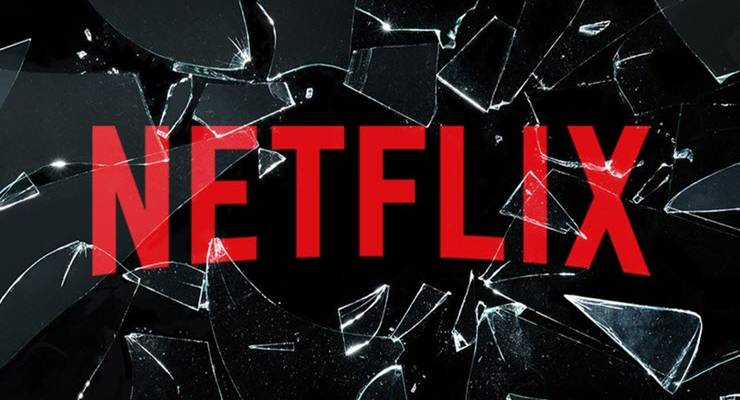
It feels a lot like we’re living through a bad remake of the 1930s, except with social media to keep us even more anxious.
The borders are shutting. News Corp is seriously engaging with the idea of companies nationalising. And while the punters continue to panic and hoard, experts disagree over how this crisis is going to pan out.
The numbers creep higher
An 81-year-old woman died in NSW overnight, marking the state’s sixth COVID-19 death, the seventh nationwide.
Meanwhile, as the graph below shows, the numbers continue to steadily rise and the curve isn’t flattening. With the health department website slow to update, people are increasingly turning to volunteer number-crunchers to get us high-quality up to date data.

Fully automated virus communism
We’re starting to reach the point where people are realising that unchecked neoliberal capitalism might not be much use in navigating an unprecedented global pandemic and recession.
Yesterday, the pinkos over at Macquarie Wealth Management warned The Australian that “conventional capitalism is dying” and we could be heading towards “something that is closer to a version of communism”.
This morning, another report in the Oz (yes, the Oz) suggested Scott Morrison would soon have to consider temporarily nationalising some failing companies, including in aviation, transport, and basic economic infrastructure.
Treasurer Josh Frydenberg didn’t explicitly rule out nationalisation on ABC News Breakfast this morning, but said it was “not out focus right now”.
Qantas boss Alan Joyce, meanwhile, must think it’s a possibility, urging the government not to nationalise Virgin.
And the idea is getting increasing traction in Europe. Italy recently nationalised flag carrier Alitalia. France’s finance minister says the country might nationalise big companies. In the UK, Boris Johnson’s government is considering nationalising the railways, a plan of Jeremy Corbyn’s manifesto which the Tories mocked for years.
The authoritarianism we had to have
Yesterday, the Morrison government announced it was closing Australia’s borders to foreign visitors for at least six months. We’ve never done this.
It came just after Tasmania announced strict quarantine measures for new arrivals, and an overseas travel ban went up. We’ve also never done this.
Speaking to Ray Hadley on his home turf of 2GB, Home Affairs Minister Peter Dutton said his department and the Australian Federal Police would be mobilising the long arm of the law to deal with panic buyers, who he said were selling products overseas and on the black market.
“It won’t be a pretty experience when we deal with them,” Dutton warned rather chillingly.
He also urged good citizens to take photos of bulk buyers and dob them into the police.
It comes after reports panic buying has hit pharmacists, which are now being forced to ration medication like asthma puffers and children’s Panadol.
Nobody knows how bad things will get
One of the hardest things to grapple with in this current moment is that nobody is really sure how this will play out, how many people will die, how long we should socially isolate, and when life can start slowly getting back to resembling something normal.
But a recent report from Imperial College London was a jarring reminder of just how bad things could get. With its dire warnings of an unmitigated epidemic causing 510,000 deaths in the UK and 2.2 million in the United States, the paper spurred both the White House and Downing Street to take the crisis more seriously.
Researchers say the best option would be suppression — population-wide social distancing, quarantining of infected families and closure of schools and universities.
This would need to be in place until a vaccine was ready, possibly up to 18 months.

In Australia meanwhile, we’re still dealing with the challenge of who to listen to. Over the last week, the ABC’s Dr Norman Swan appears to have emerged as a national authority on the virus, criticising the government for not moving quickly enough.
That criticism seems to have attracted some pushback — a story in the Sydney Morning Herald this morning quoted a number of health experts calling for greater unity behind the government’s messaging on the virus.
Meanwhile, Swan, who just days ago wanted schools closed, appeared to backtrack, saying today that he wouldn’t keep school-aged children at home — in line with the government’s approach.
Which is to say that expert opinion, like the virus itself, continues to move fast.
Please don’t break Netflix
It turns out having millions of people stuck at home is putting too much pressure on streaming services. Netflix today announced it would reduce streaming quality in Europe for the next 30 days to deal with increased demand.
But on a brighter note, plenty of things are now available online for free.
Several Australian artists are playing at “Isol-Aid”, a music festival held over Instagram live this weekend. Orchestras like the Berlin Philharmonic, and our own Melbourne Symphony are putting concerts online.
And in a particularly exciting development, FIFA announced it will be putting full replays of 30 classic World Cup games on YouTube.








Nationalise it all I say!